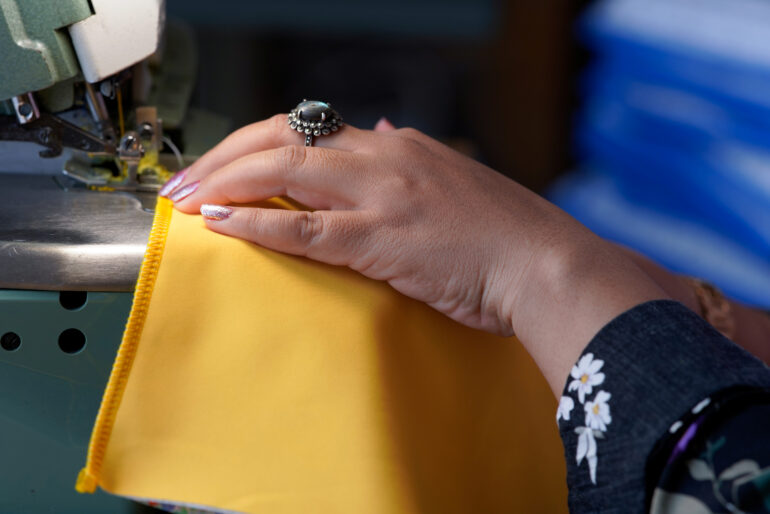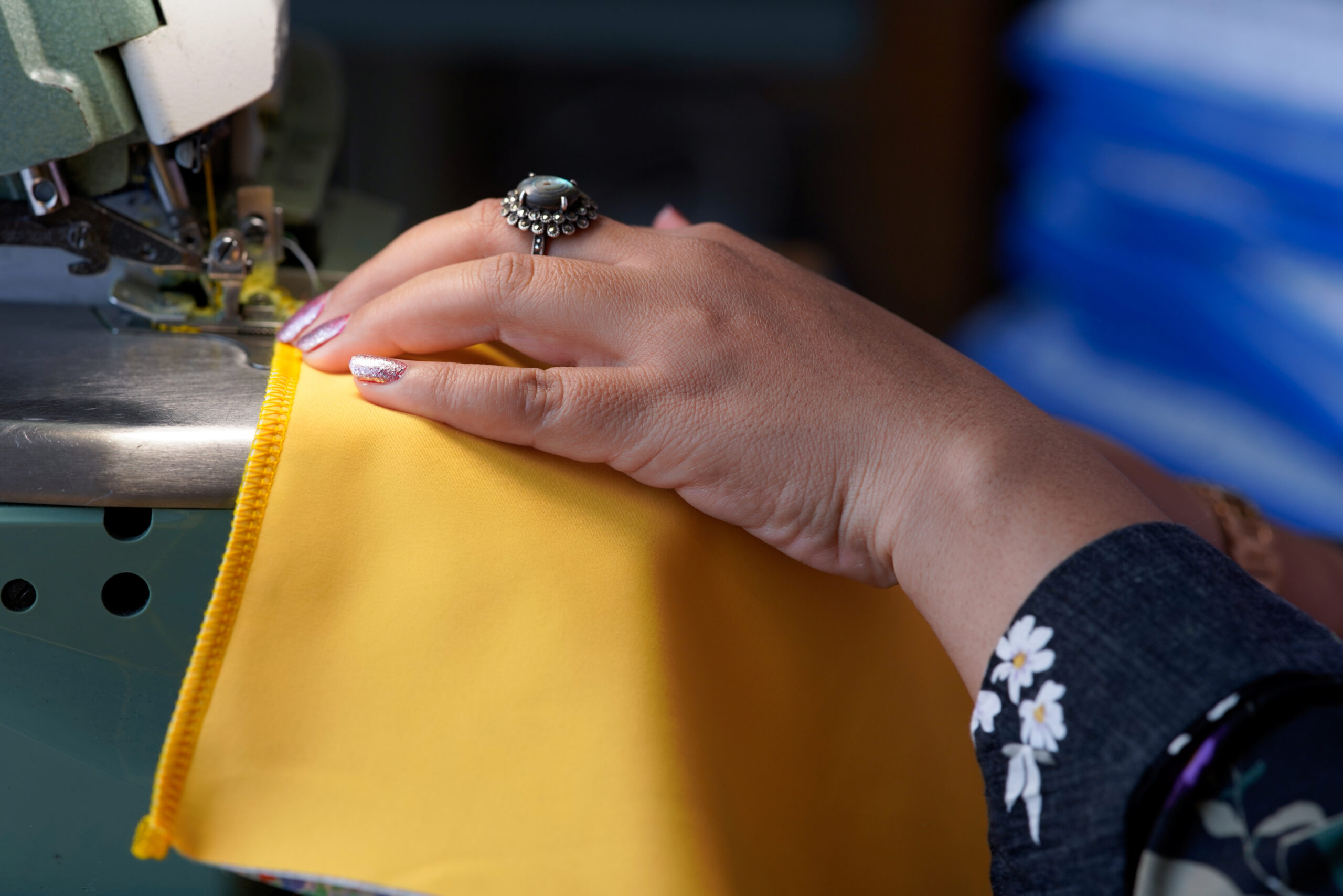
A worker at The Social Studio sews masks to help curb the spread of the coronavirus disease (COVID-19) in Melbourne, Australia, August 26, 2020. (REUTERS/Sandra Sanders)
Beatriz Baleeiro
Fall is here and it looks like the pandemic or the need for face masks is not going away anytime soon, which has led to a surge of single-use PPE littering in urban areas.
Alexa Perez, 26, Humber’s Graphic Design graduate has noticed the issue. “I have been seeing masks and gloves being disposed of in busy areas, which is really frustrating because there are multiple trash bins where people can throw them away, but people will still throw them on the ground,” she said.
Trying to be part of the solution, Centennial College has partnered up with TerraCycle, a volunteer-based recycling company that collects non-recyclable, pre-consumer, and post-consumer waste in order to control the waste that has increased due to COVID-19.
Instead of discarded PPE ending up in the landfill, students can dispose PPE in one of the college’s designated recycling station bins.
According to Centennial’s website, the material will be sent to TerraCycle, where it will be cleaned, melted, and remolded to make new products like park benches, playgrounds, and garden beds.
Samantha Corway, Manager, Sustainability, Facilities & Services at Centennial College said “our sustainability team implemented the Personal Protective Equipment (PPE) collection program as a way to recycle their PPE and divert it from landfill. To do this we have deployed PPE collection points at the main exits of our campuses and in labs which have seen a higher usage of disposable PPE”.
According to Corway, TerraCycle offered a great solution for the college to safely collect discarded PPE, divert it from landfill and instead give it a second life by transforming this waste into valuable community infrastructure, such as park benches and play structures made with recycled material.
After only a month of running the program, Centennial has diverted a significant amount of discarded masks, gloves and gowns from its Health Studies and Biological, Environment and Food Science labs.
The institution looks forward to using the program as a way to talk about key issues around climate change, waste reduction, and recycling.
Some of Toronto’s fashion designers like Kingi Carpenter, a designer, and silk-screening artist, are also working on solving this problem by sewing ethical and sustainable masks.
“There were days when I was sending out 200 orders a day,” Carpenter said. “People were really excited, and they would send me messages and posting on social media telling me how my masks have made wearing them more bearable.”
Carpenter, who used to dedicate her time to making dresses, has adapted her business to the pandemic by offering fun customizable masks for children, even applying their own drawings using silk-screen.
“I made customized masks for kids at a birthday party, and instead of taking home plastic party favours that would have been thrown away a week later, each kid took home a sustainable bamboo hand-printed mask they made themselves,” she said.
The designer said that the number of people who have been contacting her because they prefer to shop local in order to get something unique and help the community has also increased.
After only a month of running the program, Centennial has diverted a significant amount of discarded masks, gloves and gowns from its Health Studies and Biological, Environment and Food Science labs. The institution looks forward to using the program as a way to talk about key issues around climate change, waste reduction, and recycling.

